General Salutations and Greetings
- Books Name
- Education Vision French Book
- Publication
- PathSet Publications
- Course
- CBSE Class 6
- Subject
- French
Informal and Formal French Salutations
1. Bonjour – Good morning / hello
You can use bonjour to say either “good morning” or “hello” to someone when you’re seeing them for the first time of the day.
2. Enchanté (e) – Nice to meet you
In a more formal setting, it’s polite to indicate that you’re delighted to meet someone after they introduce themselves, and this phrase is the perfect way to do so. It shows that you are actually pleased to meet someone new.
3. Bonsoir – Good evening / hello
This greeting is used in similar situations as bonjour but is reserved for the evening.
4. Salut – Hi
Considered one of the more casual greetings in French, salut is appropriate when you see someone again later in the day.
5. Coucou – Hey
Close friends, like the ones you’re sure to make because of this new language skill, use this casual French salutation often. You can skip the formal bonjour and use this word, or even ciao, when seeing close friends.
6. Âllo – Hello
This French salutation is used exclusively for conversations on the telephone.
7. Ça va? – How are you?
A very simple way to ask someone how they are doing is to say Ça va? It’s a condensed version of the question Comment ça va? – How are you doing?
9. Quoi de neuf? – What’s up?
This is a very casual option for how to say hello in French, so we recommend using it only with close friends. Strangers or even friends of friends may feel a little put off by an informal question like this from someone they don’t know.
French Phrases to Use When Parting
Now that you know common ways to welcome friends when you see them, you need to learn how to properly part ways. Just like with greetings, these parting phrases can differ based on the context and the familiarity with the person.
11. Au revoir! – Goodbye!
Rather formal, this is a safe way to say goodbye in French no matter the social setting or whether you know the person well or not.
12. Salut! – Bye!
This French word for “goodbye” is much more casual than au revoir. In proper French etiquette, you would normally use this with very close friends and family members at the end of a regular get-together.
13. Ciao! – See ya!
This phrase is Italian in origin, but is popular among the younger French population and international speakers around the world.
14. À plus! – Later!
This is one of those easy, casual, and friendly greetings in French and a simple way to indicate that you’ll see them at a later, unspecified time.
15. À demain! – See you tomorrow!
The word demain can be replaced with any day of the week if you know that you will see the other person soon.
Greetings
- Books Name
- Education Vision French Book
- Publication
- PathSet Publications
- Course
- CBSE Class 6
- Subject
- French
(GREETINGS IN GENERAL)
In France, a formal approach is mandatory if you want to converse with a person whom you don't know at all or very well. Don't commit a mistake by addressing someone informally before you have established a strong friendship or relationship.
There are many ways to say “Hi” in French like
GREETING
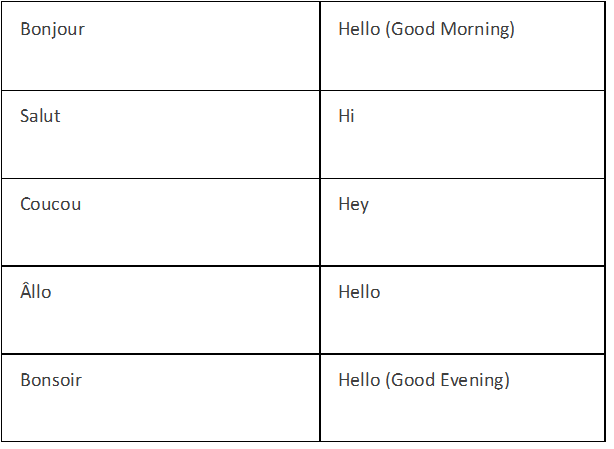
Vocabulary
- Books Name
- Education Vision French Book
- Publication
- PathSet Publications
- Course
- CBSE Class 6
- Subject
- French
VOCABULARY
The different way to say “Hi” according to the time of the day and the person (s).

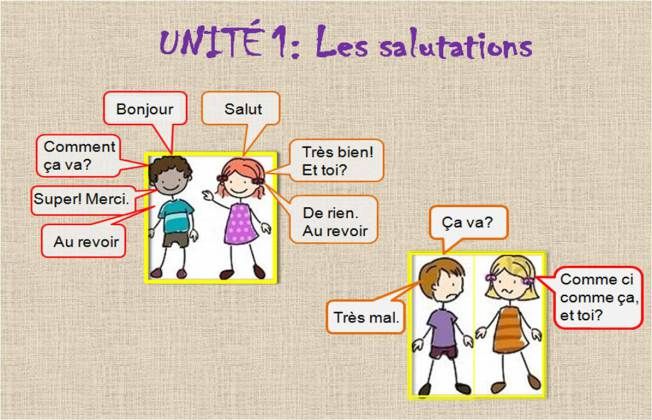
Note : “Tu” is used for informal conversation and “Vous” is used for formal conversation.
We use FORMAL greetings with older people, people we don’t know, in the work place
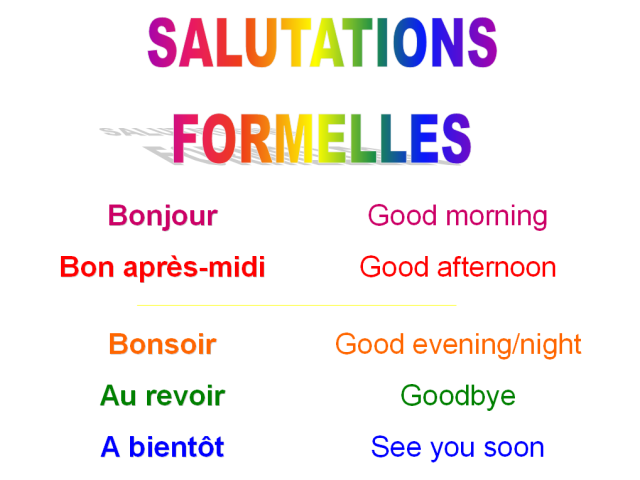
We use INFORMAL greetings with friends and family
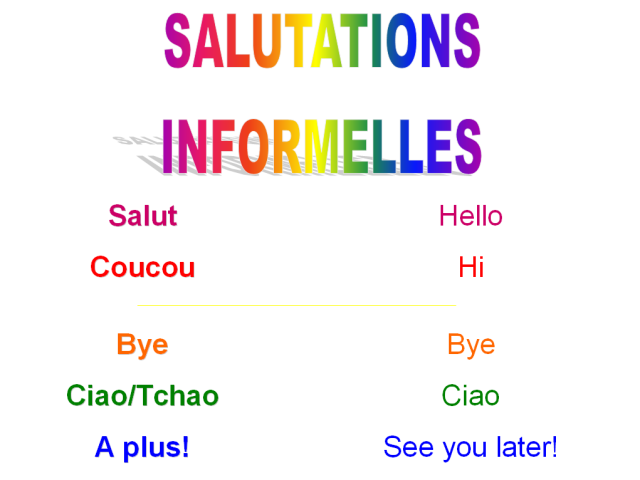
LES
Asking someone how he feels and what is his/her name:
(f) = formal / (inf) = informal
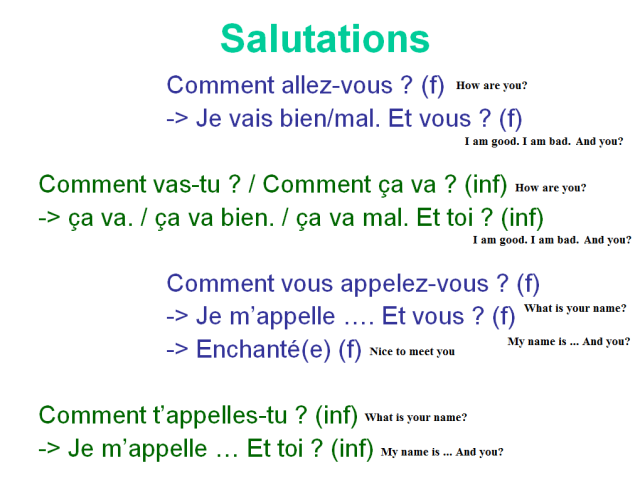
French Alphabets and Pronunciation and Sound
- Books Name
- Education Vision French Book
- Publication
- PathSet Publications
- Course
- CBSE Class 6
- Subject
- French
PRONUNCIATION
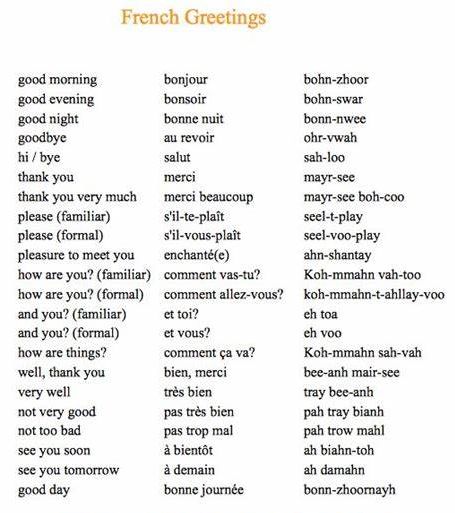
FRENCH ALPHABETS
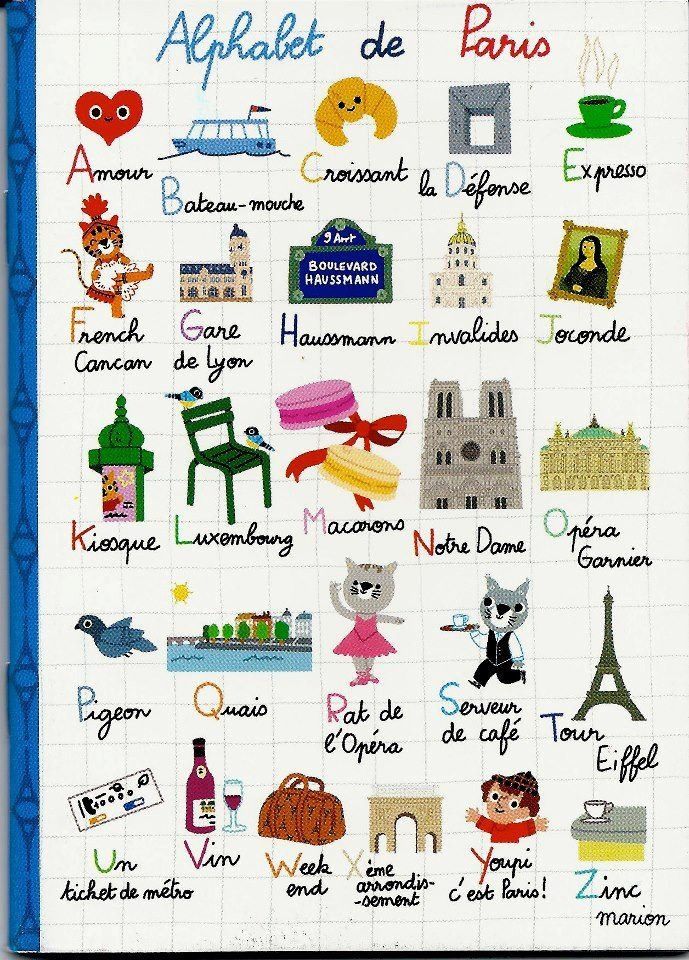
The French and English alphabets share the same letters. However, the way we pronounce the letters of the alphabet in French is a bit different.
French alphabets have the same 26 letters as in English, but not all of them are pronounced in a similar manner.
In French, we have the same vowels a, e, i, o, u and also y in some cases. The letter “h” is always is always silent and is, therefore, treated like a vowel.
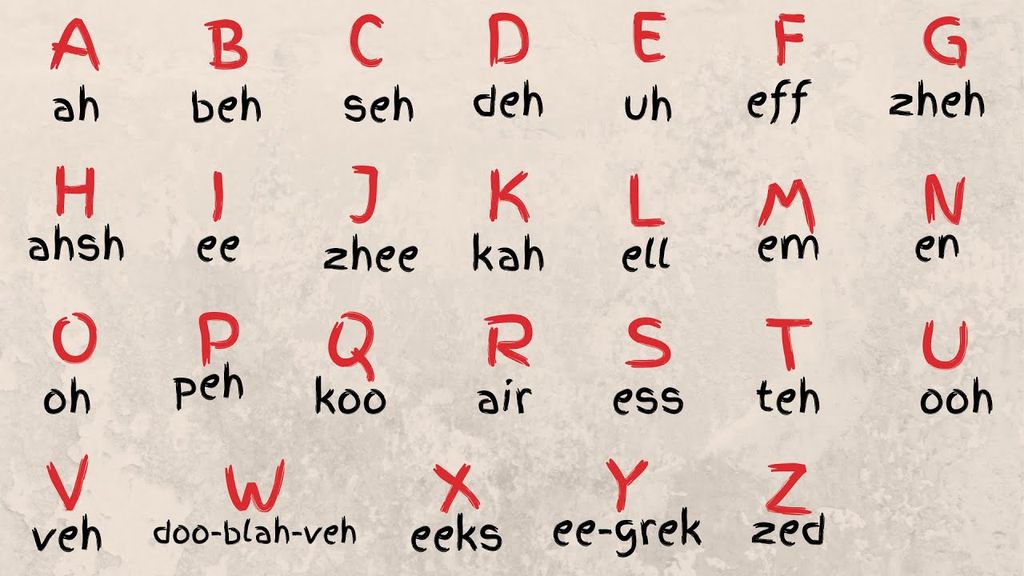
Some important points for reciting the French alphabets are:
- F L M N O S Z - sounds are almost the same as in English
- B C D G P T V (bay,say, etc.) - with the A sound as in Day
- A H K (aa, ahsh,kaa) - with the A sound as in Star
- I J X (ee, zhee, eeks) - with the I sound as in See
- Q U - with the U sound as in ew
- E (uh) - with the E sound as in But
R = Air
W = Dooble Vay (doo-bluh-vay)
Y = (Greek i) i.e. (ee-grec)
G = Zhay
J = Zhee
(G and J sound makes confused, so be careful)
Identification of French Letters (sound)
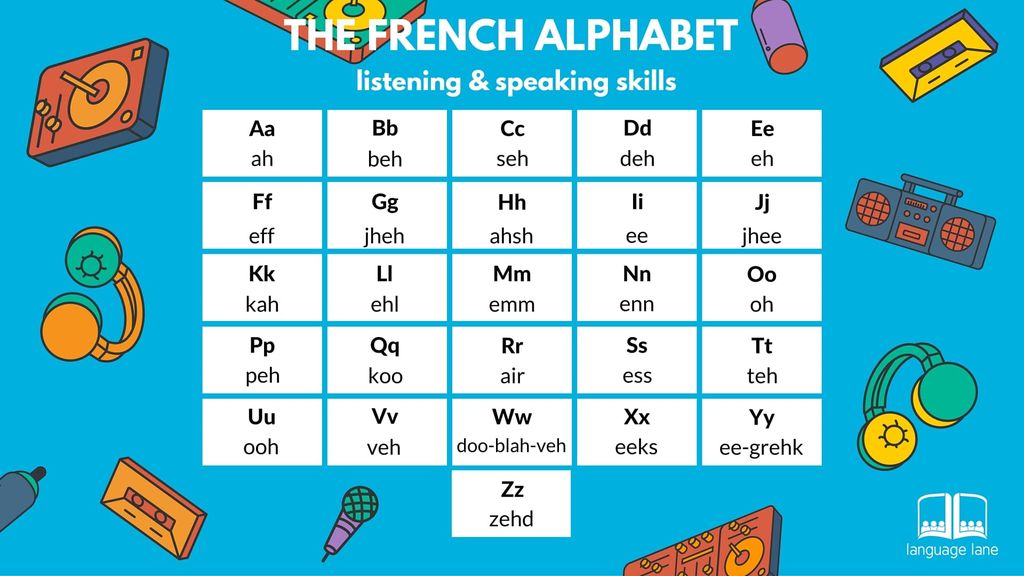
.Aside from a few exceptions, usually C, R, F, L (remember the word CaReFuL), final consonants aren’t pronounced in French. Pronounce a final consonant only if it is followed by a vowel.
General Salutations/Greetings
- Books Name
- Education Vision French Book
- Publication
- PathSet Publications
- Course
- CBSE Class 6
- Subject
- French
LES SALUTATIONS EN GÉNÉRAL
LES ALPHABETS
In France, a formal approach is mandatory if you want to converse with a person whom you don't know at all or very well. Don't commit a mistake by addressing someone informally before you have established a strong friendship or relationship.
There are many ways to say “Hi” in French like
Salutations/GREETING
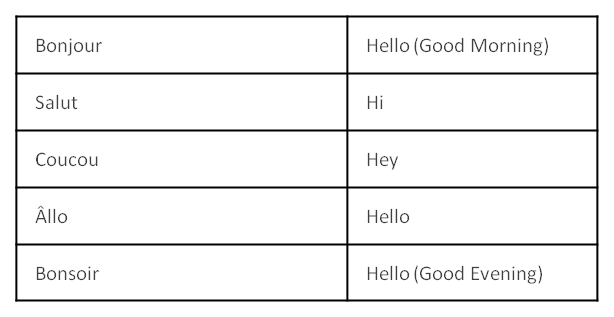
Informal and Formal French Salutations
1. Bonjour – Good morning / hello
You can use bonjour to say either “good morning” or “hello” to someone when you’re seeing them for the first time of the day.
2. Enchanté (e) – Nice to meet you
In a more formal setting, it’s polite to indicate that you’re delighted to meet someone after they introduce themselves, and this phrase is the perfect way to do so. It shows that you are actually pleased to meet someone new.
3. Bonsoir – Good evening / hello
This greeting is used in similar situations as bonjour but is reserved for the evening.
4. Salut – Hi
Considered one of the more casual greetings in French, salut is appropriate when you see someone again later in the day.
5. Coucou – Hey
Close friends, like the ones you’re sure to make because of this new language skill, use this casual French salutation often. You can skip the formal bonjour and use this word, or even ciao, when seeing close friends.
6. Âllo – Hello
This French salutation is used exclusively for conversations on the telephone.
7. Ça va? – How are you?
A very simple way to ask someone how they are doing is to say Ça va? It’s a condensed version of the question Comment ça va? – How are you doing?
9. Quoi de neuf? – What’s up?
This is a very casual option for how to say hello in French, so we recommend using it only with close friends. Strangers or even friends of friends may feel a little put off by an informal question like this from someone they don’t know.
French Phrases to Use When Parting
Now that you know common ways to welcome friends when you see them, you need to learn how to properly part ways. Just like with greetings, these parting phrases can differ based on the context and the familiarity with the person.
11. Au revoir! – Goodbye!
Rather formal, this is a safe way to say goodbye in French no matter the social setting or whether you know the person well or not.
12. Salut! – Bye!
This French word for “goodbye” is much more casual than au revoir. In proper French etiquette, you would normally use this with very close friends and family members at the end of a regular get-together.
13. Ciao! – See ya!
This phrase is Italian in origin, but is popular among the younger French population and international speakers around the world.
14. À plus! – Later!
This is one of those easy, casual, and friendly greetings in French and a simple way to indicate that you’ll see them at a later, unspecified time.
15. À demain! – See you tomorrow!
The word demain can be replaced with any day of the week if you know that you will see the other person soon.
French Phrases to Use When Parting
Now that you know common ways to welcome friends when you see them, you need to learn how to properly part ways. Just like with greetings, these parting phrases can differ based on the context and the familiarity with the person.
11. Au revoir! – Goodbye!
Rather formal, this is a safe way to say goodbye in French no matter the social setting or whether you know the person well or not.
12. Salut! – Bye!
This French word for “goodbye” is much more casual than au revoir. In proper French etiquette, you would normally use this with very close friends and family members at the end of a regular get-together.
13. Ciao! – See ya!
This phrase is Italian in origin, but is popular among the younger French population and international speakers around the world.
14. À plus! – Later!
This is one of those easy, casual, and friendly greetings in French and a simple way to indicate that you’ll see them at a later, unspecified time.
15. À demain! – See you tomorrow!
The word demain can be replaced with any day of the week if you know that you will see the other person soon.
VOCABULARY
The different way to say “Hi” according to the time of the day and the person (s).

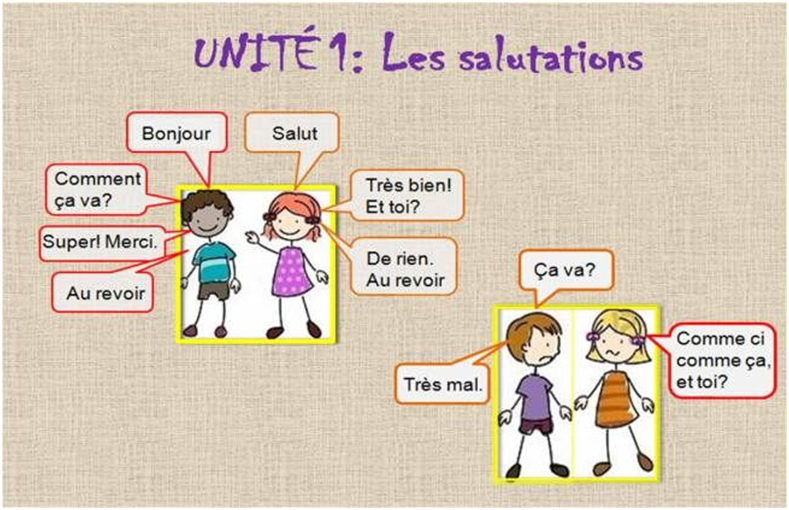
Note : “Tu” is used for informal conversation and “Vous” is used for formal conversation.
We use FORMAL greetings with older people, people we don’t know, in the work place
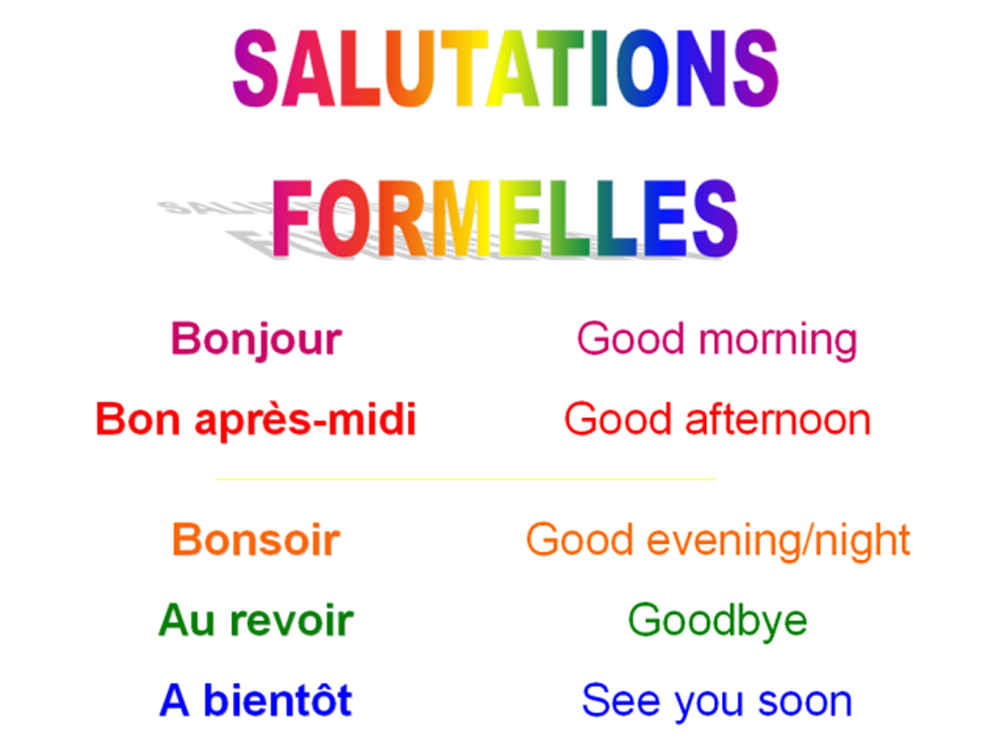
We use INFORMAL greetings with friends and family
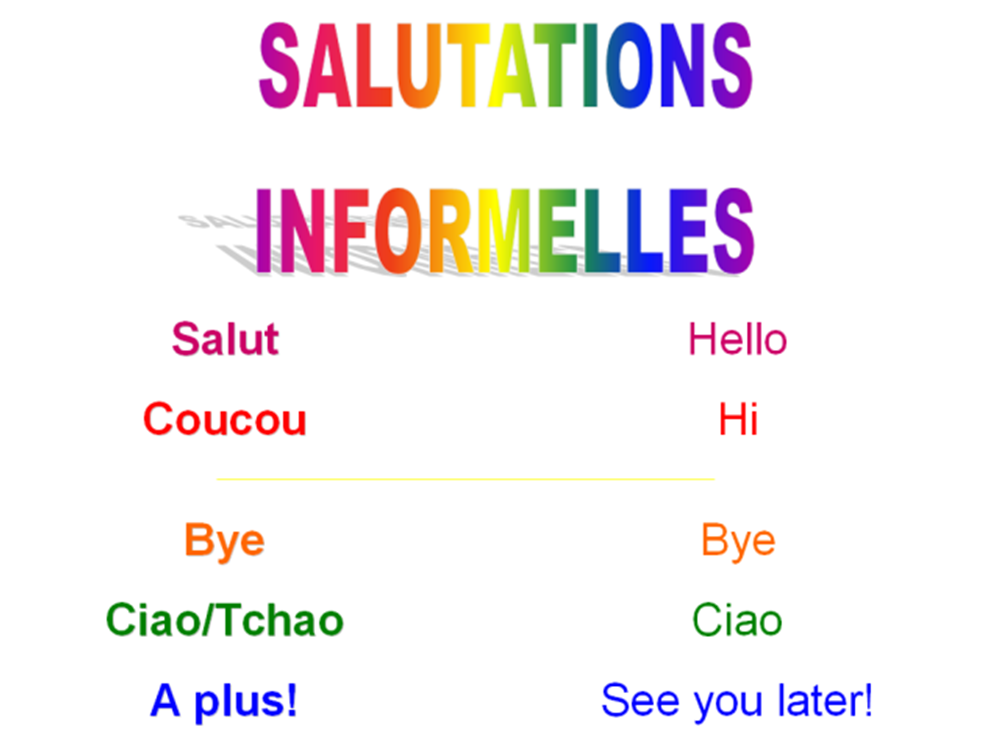
Asking someone how he feels and what is his/her name:
(f) = formal / (inf) = informal
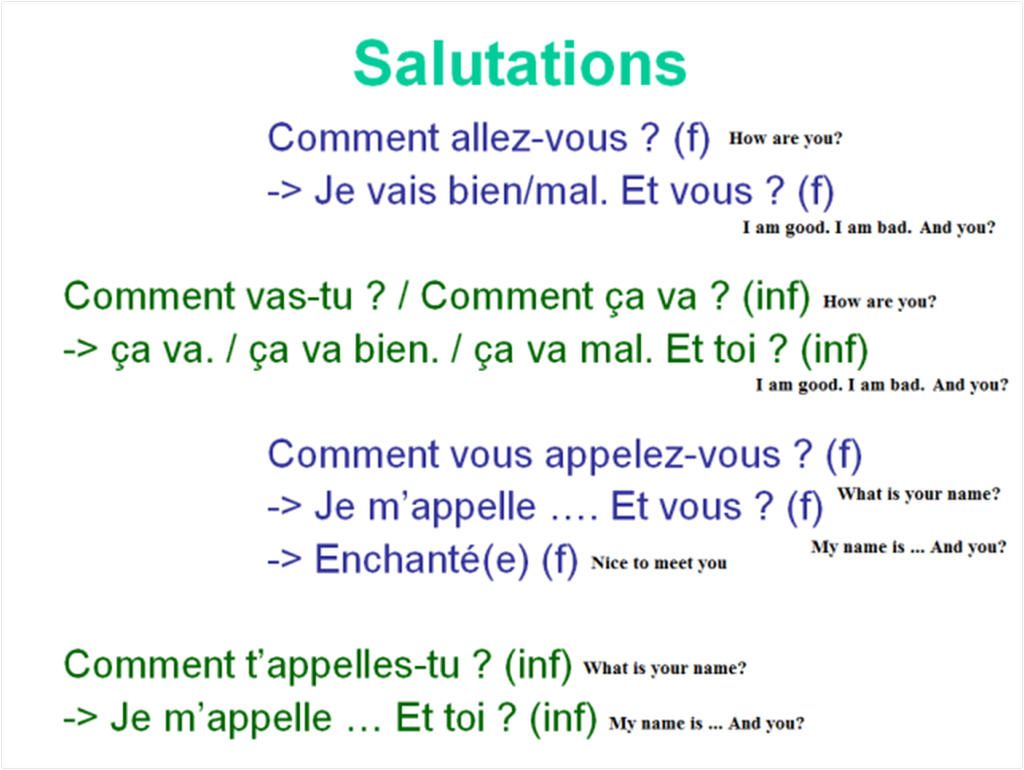

 PathSet Publications
PathSet Publications
